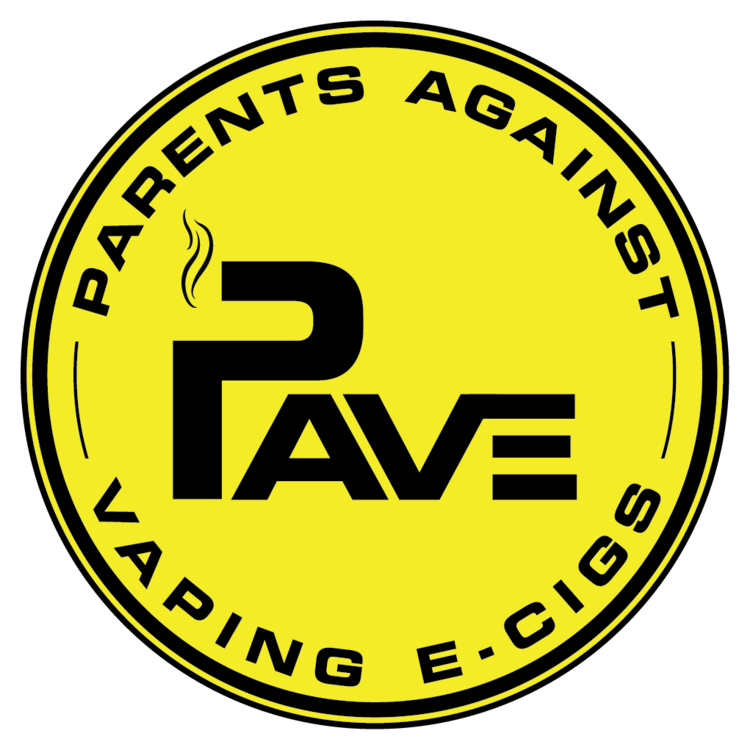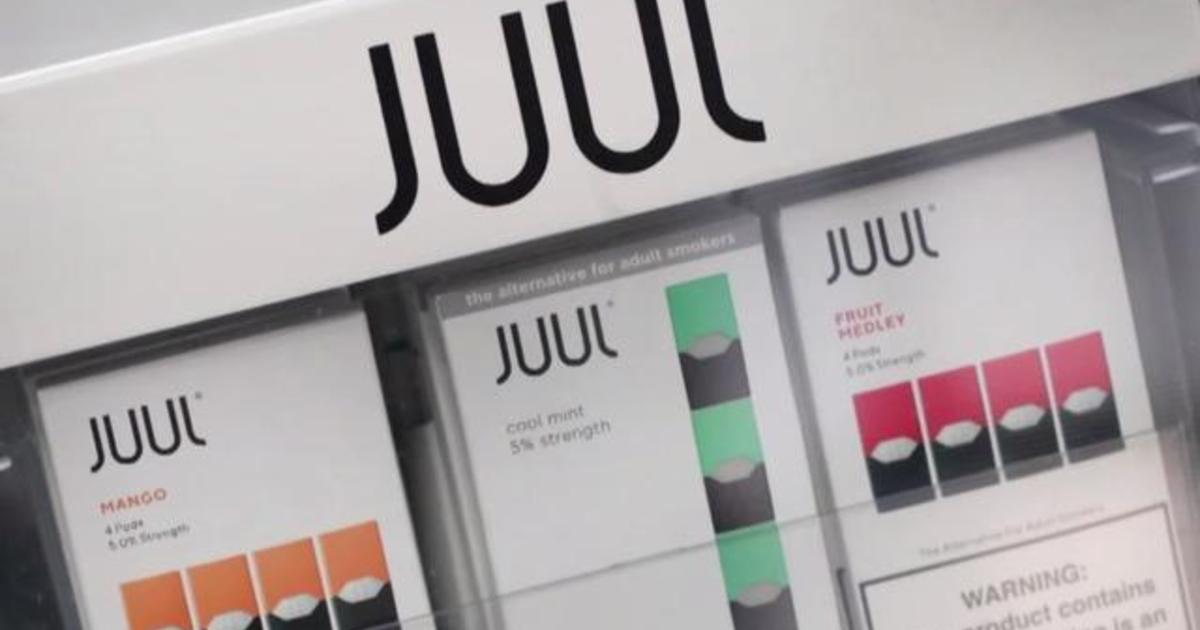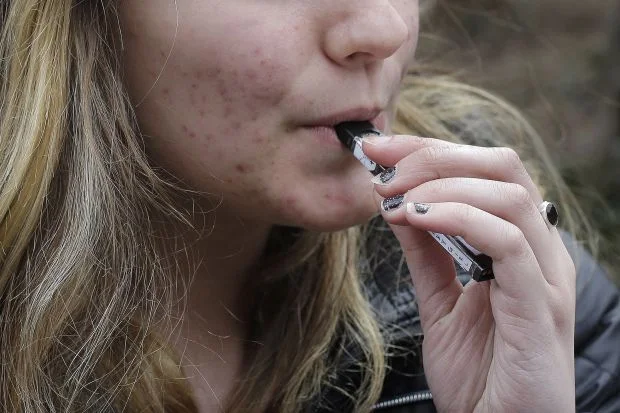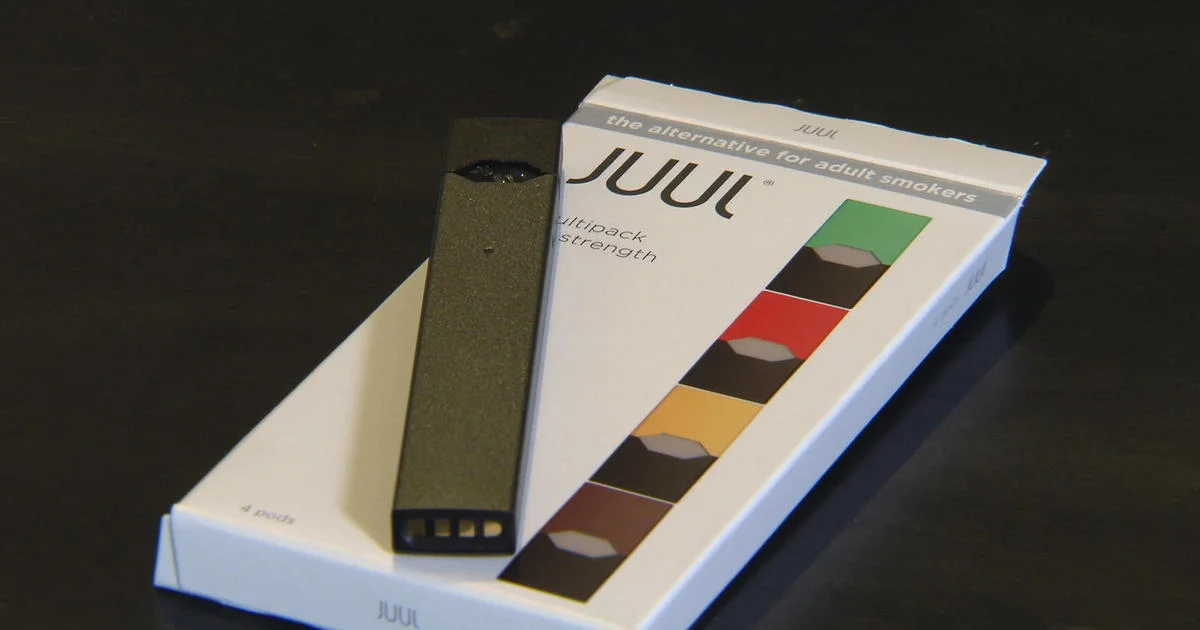The Boston Globe: In her latest battle against the e-cigarette and vaping industry, Attorney General Maura Healey is suing a national retailer for allegedly violating Massachusetts law that regulates the sale and advertisement of tobacco, saying the company targeted underage people for sales of its nicotine products.
Read MorePodcast: Meredith Berkman, the co-founder of Parents Against Vaping E-cigarettes, joins us today to expose the truth about the real harm that E-cigarettes are causing, in particular, the brand Juul.
She talks about the chemistry of the new nicotine compounds, the very shrewd and insidious marketing to kids, and what her foundation is doing to get the production halted on flavored cartridges.
The San Francisco Chronicle: For the first time, public health officials will ask about JUUL by name in an annual youth tobacco survey. A language gap is making it harder for U.S. health officials to measure a teen-vaping epidemic. For some young people who use the popular vaping device sold by JUUL Labs Inc., “JUULing” is a verb in its own right.
Read MoreThe New York Times: They’re doing it again, but in a new, slick, high-tech guise that is harder to combat. And ad agencies, which had mostly left Big Tobacco’s side, are aiding the effort, lured back in by increasing fees for the work and decreasing fears the public will judge them for it.
Read MoreCBS News: The FDA is holding a hearing Friday morning to address the alarming spike inteen vaping and how to help those who want to kick the habit. According to the National Youth Tobacco Survey, more than 20 percent of high school students admitted to using an electronic cigarette within the last 30 days – up more than 77 percent since 2017.
Read MoreBloomberg News: The e-cigarette maker JUUL has seen stratospheric sales since early 2017, making it one of the buzziest startups in Silicon Valley. But now a backlash over the company’s popularity with teenagers could jeopardize that. This week on Decrypted, Olivia Zaleski and Pia Gadkari trace the company’s story from its origins. JUUL says it only ever wanted to help adults quit smoking. Instead, it’s become a social media sensation. And critics fear teen vaping is nothing short of a new public health crisis in the making.
Read MoreThe Wall Street Journal: Number of high schoolers who used e-cigarettes in the past 30 days has risen some 75% in 2018. Teen use of e-cigarettes has soared this year, according to new research conducted in 2018 that suggest fast-changing youth habits will pose a challenge for public-health officials, schools and parents.
Read MoreBloomberg News: For the first time, public health officials will ask about JUUL by name in an annual youth tobacco survey. A language gap is making it harder for U.S. health officials to measure a teen-vaping epidemic. For some young people who use the popular vaping device sold by JUUL Labs Inc., “JUULing” is a verb in its own right
Read MoreUSA Today: At least 35 people reported seizures after using electronic cigarettes over the past decade, the Food and Drug Administration said Wednesday.
FDA Commissioner Scott Gottlieb said the agency is investigating the incidents, which primarily involved youth and young adults and were discovered in its "adverse event" reporting system.
Time: Jami Scheetz knew that her 15-year-old son, Devon, needed help. His grades were slipping and he had been caught vaping at school so many times that he was on the brink of being expelled. Last fall, at the start of his freshman year, Devon’s school even sent him to the hospital for drug testing after getting in trouble once again. In the emergency room, Devon finally admitted it: He was addicted. “He said to me, ‘Mom, I can’t quit on my own. I need help,'” Scheetz says.
The New York Post: Two chemicals found in two popular vaping flavors could destroy lung function, experts have warned.
The Harvard scientists’ findings have suggested that inhaling the popcorn- and caramel-flavored e-cigarette liquids could increase a vaper’s risk of respiratory diseases.
New England Journal of Medicine: Nicotine is amazingly addictive. About 20 years ago, researchers in a nearby laboratory were studying the effects of cigarette smoke on lung function in mice. To expose a mouse to cigarette smoke, the mouse is placed in a plastic tube, head out. The tube is positioned in a stream of smoke, which the mouse then breathes.
Read More



















